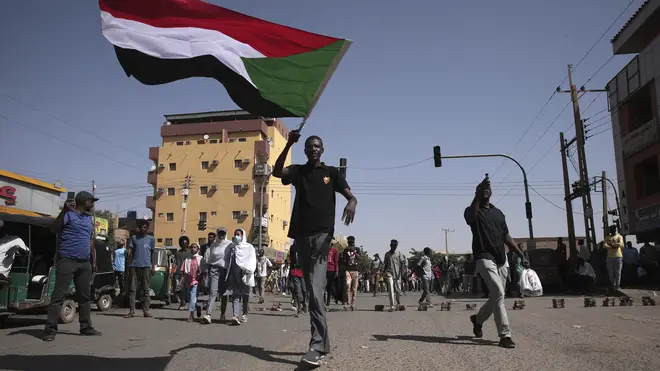
Ali Miraj 12pm - 3pm
13 January 2022, 01:54

Egypt fears that prolonged deadlock would further destabilise its southern neighbour.
Egyptian President Abdel Fattah el-Sissi has urged rival factions in Sudan to engage in talks to move forward in their transition to democracy after a coup toppled the civilian-led government.
The October 25 military takeover has upended Sudan’s plans to move to democracy after three decades of repression and international sanctions under autocrat Omar al-Bashir.
A popular uprising forced the military’s overthrow of Mr al-Bashir and his Islamist government in April 2019.
Egypt fears that prolonged deadlock would further destabilise its southern neighbour.

Following the coup, some Sudanese opposition leaders, including former foreign minister Mariam al-Mahdi, suspected that Egypt had given a greenlight for the Sudan’s military leader, general Abdel-Fattah Burhan, to oust prime minister Abdalla Hamdok’s government.
Following the coup, Egypt pointedly did not sign on to a joint statement with the US, Britain, Saudi Arabia and the United Arab Emirates calling on the Sudanese military to restore the civilian-led government.
Speaking at a news conference at the Red Sea resort of Sharm el-Sheikh on Wednesday, Mr el-Sissi denied siding with either party in Sudan.
He insisted that his government does not intervene in other country’s internal affairs.
The Egyptian leader called on Sudanese parties to agree on a roadmap to stabilise the country and hold elections at the end of the transition.
“The situation in Sudan needs a political consensus among all existing forces, so it can be a way out of the current crisis,” he said.

The military takeover has plunged Sudan into a political stalemate and relentless street protests that have brought the deaths of more than 60 people since October 25.
Protesters want a fully civilian government to lead the nation, while the military says it would only hand over power to an elected administration.
The turmoil intensified earlier this month following the resignation of embattled prime minister Abdalla Hamdok after he failed to reach a compromise between the military and the pro-democracy movement.
Mr Hamdok had been removed in the coup only to be reinstated in November as part of an agreement with the military.
The deal side-lined the pro-democracy movement, which has mobilised the street protests. Protest groups plan mass demonstrations across the country on Thursday to pressure the military.